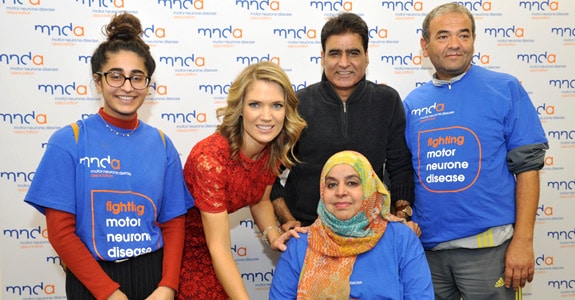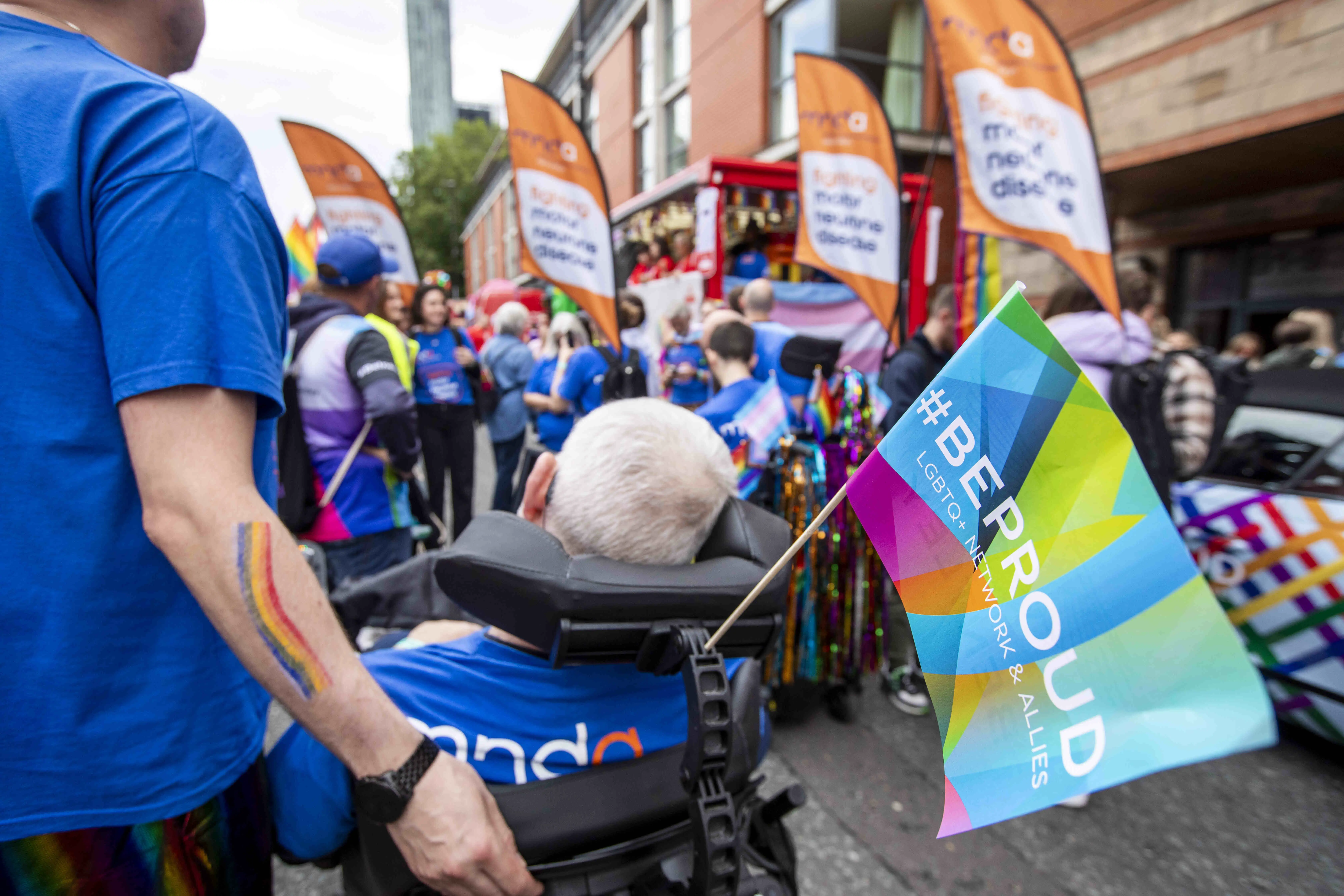
Motor neurone disease is an inclusive condition. Although it is more prevalent amongst older people it does not discriminate directly or indirectly on the grounds of sexuality, ethnicity, religion, disability, gender, sex or age.
Below you'll find information about: our journey towards inclusion, our 2022 Inclusion Strategy, initiatives we are part of, whether it is making a difference and ways to get involved.
Our journey towards inclusion
At the MND Association, we are determined to become fully inclusive by continuing to embrace diversity, remaining committed to equity and ensuring that all of our products and services are fully accessible.
In this way, we can ensure that people with and affected by MND get the best possible care and support in their particular circumstances and we are able to help more people. We have made a good start and in the last couple of years have:
- Created network groups for our LGBTQIA+ and BAME communities
- Designed and rolled out multi-channel awareness raising and learning programmes
- Built a team of Inclusion Champions
- Made a commitment to only use accessible venues
- Started to engage with different communities and launched our extending our reach programme
- Achieved Disability Confident-Employer status
- Became a Stonewall Diversity Champion
- Formed a team of Mental Health First Aiders and launched a comprehensive staff wellbeing programme
- Reviewed and revised our approach to recruitment
Initiatives we are a part of
- The Stonewall Diversity Champions Programme We are working towards qualifying for inclusion in the workplace equalities index.
- Disability Confident We have achieved Disability Confident Employer status
- Communication Access UK
- National Highways Roads for All forum
Is it making a difference?
It is too early to determine whether or not our work in this area is making a difference but these are some of the outcomes we are working towards:
- our support and that of our partners is designed to meet people’s many differing needs, including the needs of under-served groups
- increased engagement with diverse communities raises awareness, participation and personalised support (community engagement project)
- people affected by MND are shaping our priorities and services
- everyone feels valued and welcome at the MND Association.
Get involved
Network groups and Forums
Our network groups and forums are designed to help ensure that people from different communities who work, volunteer or who are otherwise part of the Association feel safe supported and comfortable, have a voice and make a difference within and to the Association. If you would like to join the network groups, please Email the addresses below.
Pride Network
The group is open to any member, friend or ally, of the Lesbian, Gay, Bi, Trans, Queer or questioning, Intersex and Asexual+ community who has or is affected by MND or who volunteers or works for the Association. To find out more please contact:
Embrace Race Equality Network
The Embrace Network is open to any member, friend or ally of the Black, Asian and Minority Ethnic* community who has or is affected by MND or who volunteers or works for the Association. To find out more please contact:
*BAME or BME are the two terms most often used to describe the Black, Asian and Minority Ethnic community. There are others including People of Colour (POC) and Racially Minoritised People (RMP). No single term is universally popular or inclusive, hence the Network’s decision to use the term Embrace.
Less visible Disabilities and Conditions Forum
The forum offers a safe space for staff and volunteers who are neurodivergent or who are managing their own mental health issues.
